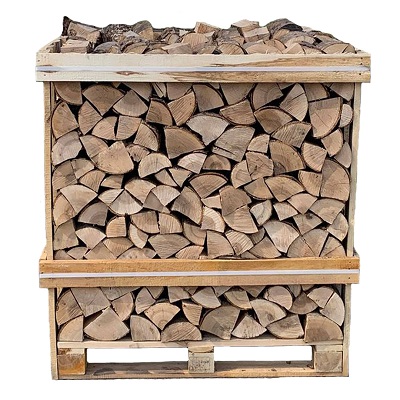Best Wood Supplier Near Me: A Complete Guide to Finding Quality Timber for Every Project
Introduction
Wood is one of the oldest and most versatile building materials in human history. From ancient temples to modern furniture, wood continues to play a central role in construction, design, and everyday life. If you’ve ever searched online for “best wood supplier near me,” you’re not alone. Homeowners, DIY enthusiasts, contractors, and businesses alike are constantly looking for reliable wood suppliers who can deliver quality timber at competitive prices.
But here’s the catch—finding the right supplier isn’t just about proximity. It’s about quality, variety, sustainability, service, and value. In this guide, we’ll explore everything you need to know about choosing the best wood supplier near you, including types of wood available, factors to consider, common uses, cost comparisons, and insider tips for making the best choice.
By the end, you’ll know exactly how to pick a supplier that matches your needs, whether you’re building a backyard deck, crafting custom furniture, or sourcing bulk wood for a commercial project.
Why Choosing the Right Wood Supplier Matters
Quality Over Quantity
Not all wood is created equal. A trusted supplier ensures that the wood you buy is properly seasoned, kiln-dried, and free from defects. Poor-quality wood can warp, crack, or attract pests, leading to wasted money and effort.
Variety of Options
A reliable supplier will stock a wide range of hardwoods, softwoods, and engineered wood products, giving you flexibility for different projects. Whether you need oak for premium flooring or pine for DIY shelving, variety matters.
Sustainability and Certifications
Modern consumers and businesses are increasingly eco-conscious. Choosing a supplier with FSC (Forest Stewardship Council) or PEFC (Programme for the Endorsement of Forest Certification) certifications ensures your wood is sourced responsibly.Buy Wood Online
Expert Guidance
Good suppliers don’t just sell wood—they guide you. Whether it’s recommending the right wood species for your climate or suggesting cost-effective alternatives, their expertise can save you both money and time.
Types of Wood Commonly Supplied by Local Timber Merchants
Hardwood Options
Hardwoods are dense, durable, and perfect for projects that require long-term strength. Some popular hardwoods you’ll find at local suppliers include:
- Oak – Known for its strength and beautiful grain.
- Walnut – Rich, dark, and perfect for luxury furniture.
- Maple – Strong, fine-grained, and versatile.
- Teak – Highly durable and resistant to weather, making it ideal for outdoor furniture.
Softwood Options
Softwoods grow faster and are generally more affordable. They’re commonly used in construction and DIY projects:
- Pine – Lightweight, affordable, and easy to work with.
- Cedar – Naturally resistant to pests and decay, perfect for outdoor projects.
- Fir – Strong and often used for framing and structural work.
- Spruce – Popular for general-purpose construction.
Engineered Wood Products
Engineered wood is increasingly popular for both home and commercial use. Local suppliers often stock:
- Plywood – Strong and versatile, ideal for cabinets and flooring.
- MDF (Medium-Density Fiberboard) – Smooth and easy to paint, great for furniture.
- Particle Board – Affordable option for temporary or low-cost projects.
Factors to Consider When Choosing the Best Wood Supplier Near You
1. Proximity and Delivery Services
While a local supplier is convenient, check whether they offer delivery. For larger projects, having wood delivered to your site saves time and effort.
2. Reputation and Reviews
Always check online reviews and ratings. A supplier with positive customer feedback is more likely to provide consistent quality and service.
3. Price Transparency
Look for suppliers who provide clear pricing, including delivery and cutting fees. Hidden charges can quickly inflate your budget.
4. Stock Availability
Some projects require large quantities of specific wood species. Choose a supplier who can provide consistent stock without delays.
5. Customer Service
Good suppliers answer questions, provide samples, and offer advice. If a supplier seems unhelpful, they’re probably not the right fit.
Best Uses of Wood from Local Suppliers
For Homeowners
- Flooring: Hardwood like oak and maple adds elegance and durability.
- Furniture: Both hardwood and softwood can be used depending on budget.
- Outdoor Projects: Cedar and teak are excellent for garden furniture and decks.
- DIY Crafts: Plywood, pine, and MDF are perfect for smaller, affordable projects.
For Businesses
- Construction: Softwoods like pine and fir are widely used for framing.
- Retail & Office Design: Hardwood for premium finishes, engineered wood for cost efficiency.
- Bulk Orders: Reliable suppliers can provide consistent quality in large volumes.
Cost Comparison: Hardwood vs Softwood vs Engineered Wood
| Type | Average Cost (per cubic foot) | Best For |
|---|---|---|
| Hardwood | $8 – $25 | Flooring, luxury furniture, long-term use |
| Softwood | $3 – $10 | Construction, DIY projects, general use |
| Engineered Wood | $2 – $8 | Cabinets, shelving, budget-friendly builds |
Benefits of Buying from a Local Supplier vs Big Retail Chains
Local Suppliers
- Personalized service.
- Better knowledge of regional climate and wood needs.
- Flexible bulk order pricing.
- Often source wood more sustainably.
Big Retail Chains
- Wide accessibility.
- Consistent availability of common wood types.
- Usually higher prices for specialty wood.
How to Find the Best Wood Supplier Near Me
Online Search
Start with Google or Bing. Search terms like “best wood supplier near me” or “timber merchants near me” yield local listings with reviews.
Directories and Marketplaces
Websites like Yelp, Houzz, or industry directories often list local wood suppliers with detailed reviews.
Word of Mouth
Ask local contractors, carpenters, or DIY enthusiasts. Personal recommendations often lead you to hidden gems.
Visit in Person
Whenever possible, visit the supplier to inspect the wood. Photos online can be misleading, so physical inspection ensures quality.
Tips for Buying Wood Locally
- Ask for Samples – Especially for flooring and furniture projects.
- Check Moisture Content – Wood should be properly dried to prevent warping.
- Negotiate Bulk Discounts – Suppliers often reduce costs for large orders.
- Inquire About Custom Cuts – Some suppliers offer cutting services for precise dimensions.
- Look for Sustainability Certifications – Ensure responsible sourcing.
Future of Wood Supply and Sustainability
With climate change and deforestation concerns, sustainable wood sourcing is more important than ever. The best suppliers are embracing eco-friendly practices, such as replanting programs, using reclaimed wood, and reducing carbon footprints through efficient delivery methods. As a consumer, supporting such suppliers helps protect forests while still meeting your project needs.
Conclusion
Finding the best wood supplier near you is about more than just proximity—it’s about trust, quality, sustainability, and service. Whether you’re a homeowner sprucing up your living space, a DIY hobbyist building something unique, or a business sourcing bulk timber, the right supplier makes all the difference.
By considering factors like wood type, supplier reputation, sustainability certifications, and cost, you can confidently choose a wood supplier who not only meets your needs but also provides long-term value.
So next time you search “best wood supplier near me”, use this guide to make an informed decision. Your perfect supplier might be closer than you think!
FAQs
1. How do I know if a wood supplier near me is reliable?
Check online reviews, certifications, and ask for samples before purchasing.
2. What is the most affordable type of wood for DIY projects?
Softwoods like pine and spruce are budget-friendly and easy to work with.
3. Can local wood suppliers deliver large orders?
Yes, most suppliers offer delivery services, especially for bulk orders.
4. Is hardwood always better than softwood?
Not necessarily—it depends on your project. Hardwoods are durable, while softwoods are versatile and cost-effective.
5. How can I ensure the wood I buy is eco-friendly?
Look for suppliers with FSC or PEFC certifications and ask about their sustainability practices.


